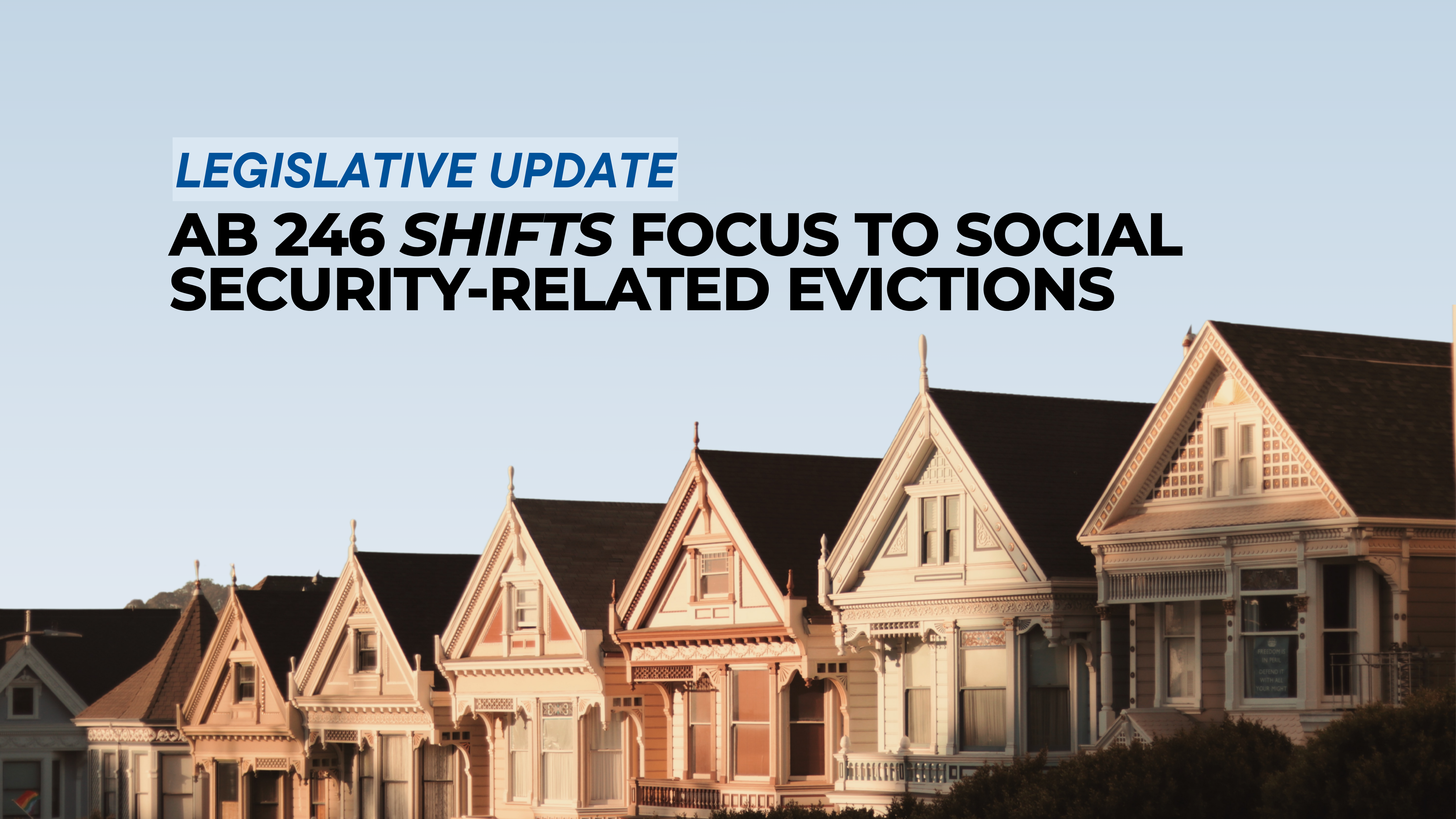LATEST IN THE LAW


AB 246 Overhauled: New Limits on Evictions Tied to Social Security Delays
May 6, 2025 0 Comment Category: Landlords and TenantsAB 246 has undergone a complete transformation. Initially introduced to address rent hikes during wildfire emergencies, the legislation has been rewritten to offer eviction protections to tenants facing Social Security payment delays. This shift in scope brings new obligations for California landlords—particularly those managing tenants on fixed federal incomes.
Key Changes Under the Revised AB 246
Eviction Restrictions During Federal Payment Interruptions
Under the updated bill, landlords are temporarily barred from initiating eviction proceedings based on unpaid rent if tenants submit a declaration stating they didn’t receive their scheduled Social Security benefits due to a declared delay.
Defined Criteria for Protection
An official “Social Security payment interruption” is now defined as a delay of three or more calendar days beyond the scheduled benefit payment date. The California Department of Finance is tasked with monitoring and announcing these periods.
New Requirements for Eviction Notices
During a declared interruption:
-
A 3-day notice to pay or quit must include exact language mandated by the bill.
-
Landlords must attach a blank declaration form that tenants can fill out.
Without these, the notice is not legally valid.
Tenant Declarations and Protection Window
Tenants are given 15 business days from receipt of the eviction notice to return a signed declaration citing the delay in benefits. If submitted on time, landlords may not proceed with eviction for rent owed during the protected period.
Duration of New Rules
The Social Security Tenant Protection Act of 2025 will remain active through at least January 20, 2029, affecting long-term eviction strategy for rental property owners statewide.
How This Impacts California Landlords
1. Added Compliance Responsibilities
Landlords must now be alert to federal payment disruption declarations and revise their eviction procedures accordingly.
2. Temporary Disruptions in Rent Collection
Delays in rent payments may become more frequent among tenants receiving federal benefits, potentially affecting landlord cash flow.
3. Heightened Risk of Procedural Errors
Failure to comply with notice requirements or deadlines could lead to invalid eviction actions. Working with legal counsel familiar with California landlord-tenant law is recommended.
Conclusion
The overhaul of AB 246 signals a significant policy shift in California’s approach to housing stability. While aimed at protecting vulnerable tenants during administrative delays, it introduces procedural demands for housing providers. Staying legally compliant while maintaining operational efficiency will be essential for California landlords moving forward.
FAQs
What is considered a “declared Social Security payment interruption”?
A delay of three or more calendar days past a tenant’s benefit payment date, officially recognized by the California Department of Finance.
Do landlords have to provide a declaration form to tenants?
Yes. During an official delay period, landlords must include a blank declaration form with the 3-day notice to pay or quit.
What happens if a landlord does not follow the updated notice requirements?
Any notice served without the proper language and forms is invalid and cannot support an eviction filing.
Can a landlord use the security deposit to cover unpaid rent during a declared interruption?
Only if the tenant agrees in writing.
Is this law permanent?
No. It is currently set to be in effect until at least January 20, 2029.


leave A comment